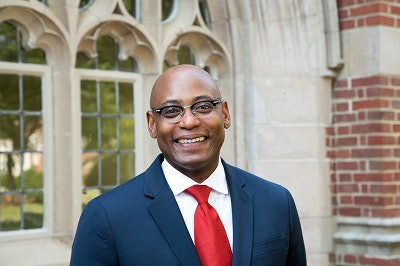After a hiatus of a little over a month because of the novel coronavirus, Saturday Night Live aired for the first time on April 11, 2020. “SNL At Home” reflected the reality with which we have all become familiar: the “Brady-Bunch” style picture-boxes of Zoom, reproducing ourselves, smiling at each other while glancing from time-to-time at our own images, dressed up or styled down, against backdrops as misdirecting as our meandering eyes. The SNL cast poked fun at our new workday situations and leisure activities, such as hastily recorded workout videos, imaginatively led by Justice Ruth Bader Ginsberg, or at least Kate McKinnon’s embodiment of her character’s nimble nonagenarian. However bleak the times in which we live, laughter has been scientifically studied as having positive physiological effects.
Critical response to SNL has been by and large positive and noted the challenges regarding what “live” really means during a contagious, global pandemic that requires social distancing. Others across the country have taken on similar endeavors, from theatre companies selling tickets to recorded events, to musicians broadcasting impromptu concerts. The Modlin Center for the Performing Arts at the University of Richmond has gathered some of these at their website.
The current moment gives us an opportunity to reflect on the role of art, more broadly, in these troubled times.
 Dr. Patrice Rankine
Dr. Patrice Rankine- Art holds up a mirror that is worthwhile and healthy. The formulation “art imitates life” is from the Roman poet Ovid, Ars Poetica (“The Poetics of Art”). Art does not only reflect reality, and we will get to that momentarily, but the reflection of reality that I found on SNL was a relief. Other than chuckles with friends and colleagues here and there, I had not had the opportunity to fully pause and take in the present absurdity or its sublimity, its poignancy or its banality. SNL Live afforded me that occasion, and judging from the critical response, it did the same for others. Whatever being “political” or “social” beings means in the age of COVID-19, SNL Live affirmed that this is what we’re all doing now. The capitalist, neoliberal marketplace has also seized on the moment. Commercials reflecting everything from online learning, to kudos to healthcare professionals, to grocers and car dealers who applaud being “together apart,” have the gestalt of award-winning Superbowl Sunday advertisements. What artists do with this moment, when they have had time to cultivate their work, will be worth our attention. This new art (see, for example, FAKE’s “Super Nurse”) will certainly reflect the economic, racial, class, national, and personal differences that we took with us into quarantine and that will be with us when we return–perhaps even more starkly than ever.
- It’s useful that we are now pressed to refine our tools for communication and reflection. Technology is a tool, and like everything else in our environment, it comes with pros and cons. Socrates (in Plato’s Phaedrus) was concerned that the relatively new tool of writing (by the 5th century BCE) would be like any drug (pharmakon), as his metaphor had it: excellent in the right dose, such as writing as a means of recollection; toxic at its extremes, where society no longer has griots because everything is in a book somewhere that no one ever reads. (Quick: Recite the phone number of just one of your intimates, whether mother, father, partner, or friend!) As we were transitioning to using our most advanced technological tools to connect at distance in virtual classrooms and offices across the world, we were struck by the economic, racial, and spatial disparities. Art may reflect reality through videoconferencing, but many students in rural areas or those without expensive broadband connections were at a disadvantage. Poorly resourced schools, from K-12 to colleges, had to regroup, and some fell behind in surprising ways. These realities are now exposed for many, even if they were somewhat invisible before.
- Art can help us imagine better alternatives to what is real. While Ovid and Aristotle before him focused on the reflective and pleasurable aspects of art, others (such as Plato) were also aware of its refining quality. In human societies, we speak of phenomena such as “beauty” or “order.” These are constructed, of course, but we all have ideals in our minds that are constantly evolving. This process of evolution is also true of art, which holds to ideals and to reimagining what is real. When he received his Mark Twain award on October 27th (viewable on PBS and Netflix), Dave Chappelle celebrated standup comedy as a form crafted in America, like jazz and hip hop. Little did he or anyone at the time know the extent to which comedy (standup or otherwise) would soon become urgent. He said,“Ladies and gentlemen, this might be America’s last safe place to say what you feel like saying, and laugh at what you feel like laughing. This is sacred ground.”
The sacred ground, the refining beauty of art, is why the University of Richmond President, Ronald A. Crutcher, a cellist, took time from other pressing and urgent concerns of the day to broadcast a concert on April 17, 2020. Before he began playing, he referred to his favorite two musical pieces as his “chicken soup for the musical soul,” his “comfort food.” He recited Henry Eccles, “Sonata in G Minor;” and Camille Saint- Saëns “the Swan” (from his “Carnival of the Animals”). President Crutcher said: “What I rely on for my salve, for my relaxation, is music.” He called on other artists to go virtual, as he has, to bring joy and happiness to others.
Art is therapy for our hurting souls. Art appeals to all that is real, ideal and sublime, the worst, best and wildest things in our imagination.
Dr. Patrice Rankine is the dean of the School of Arts & Sciences and professor of classics at the University of Richmond.















